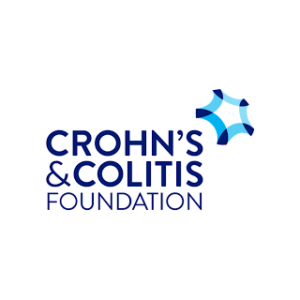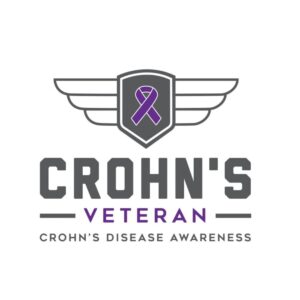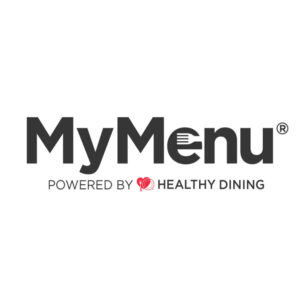Crohn’s Disease Mouth Sores: Causes and Treatment
Danielle Gaffen, MS, RDN, LD
- Last Updated
Crohn’s disease, an inflammatory bowel disease (IBD), is widely known for its impact on the digestive tract. However, it’s important to note that it can also cause complications outside the gut, including in the mouth.
Here are key things to know about whether Crohn’s disease can cause mouth sores, what they look like, and ways to manage and treat them.
Can Crohn’s Disease Cause Mouth Sores?
The short answer is yes. Crohn’s disease can indeed lead to oral complications, including mouth sores or ulcers. Up to 50 percent of people with Crohn’s will develop mouth ulcers at some point as a result of their condition.
These are sometimes one of the first symptoms of the disease, appearing even before a formal diagnosis. Mouth sores related to Crohn’s disease can appear anywhere within the oral cavity, including on the gums, inside the cheeks, on the tongue or lips, and even the roof of the mouth.
What are Crohn’s Disease Mouth Sores Called?
These sores, often referred to as aphthous ulcers or canker sores, can be painful and inconvenient, affecting daily activities like eating, drinking, and speaking. In more severe cases, known as oral Crohn’s disease, swelling and deep ulcers can develop, leading to significant discomfort and cosmetic concerns.
What Does Crohn’s Look Like in the Mouth?
Visualizing Crohn’s disease mouth sores can be helpful for those trying to understand this aspect of the disease. Oral Crohn’s disease photos typically show small, white, or yellowish ulcers with a red border. They can appear like common canker sores but often persist longer and may be more painful.
In some cases, Crohn’s disease can also affect the lips, leading to swelling, cracks, or vertical ridges. The tongue may also develop ulcers or display a geographic tongue pattern, a condition where the tongue’s surface appears map-like due to irregular patches.
Here are a few examples of what mouth sores related to Crohn’s disease may look like.
Aphthous ulcers
Occasionally, people with Crohn’s will develop painful sores in the mouth. These are known as aphthous ulcers. These oral ulcers usually appear during a flare-up of intestinal inflammation. They can resemble the common canker sore. Occasionally, much larger ulcers may appear.
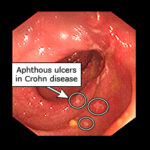
Pyostomatitis vegetans
Pyostomatitis vegetans is rare. It causes multiple ulcers, abscesses, and pustules in the mouth. It can occur with IBD. These sores are typically treated with oral and topical corticosteroids, as well as immune-modulating drugs.
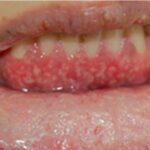
Oral ulcers due to medication side effects
Sometimes, oral ulcers may be a side effect of medications that treat IBD. These medications can cause thrush, an oral fungal infection.
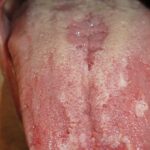
Causes of Crohn’s Disease Mouth Sores
The exact cause of mouth sores in people with Crohn’s disease is not fully understood, but it likely results from the body’s immune response. Just as the immune system mistakenly attacks the intestines in Crohn’s disease, it may also target the mouth’s mucous membranes.
Other factors that can contribute to mouth sores include:
- nutritional deficiencies, particularly of B vitamins, iron, and folic acid, due to malabsorption in the gut.
- conditions like bleeding gums and dry mouth, common in those with Crohn’s disease
How Do You Get Rid of Mouth Sores from Crohn’s Disease?
Treatment for Crohn’s disease mouth sores often involves a multi-faceted approach. Managing the underlying Crohn’s disease is paramount since reducing intestinal inflammation often improves oral symptoms as well.
Medications used to control Crohn’s disease, such as corticosteroids, immunosuppressants, and biologic drugs, can also help manage mouth sores. Topical treatments, including mouth rinses or ointments, may provide relief from pain and expedite healing.
Maintaining good oral hygiene is also essential to prevent secondary infections in the mouth sores. This includes regular brushing, flossing, and dental check-ups.
Address Nutritional Deficiencies
Addressing nutritional deficiencies is crucial as well. Ensuring a diet rich in essential vitamins and minerals or taking supplements can help.
Here are some nutritional recommendations that have helped my patients prevent exacerbation of mouth soreness:
- Drink through a straw to avoid sore areas in the mouth (unless otherwise directed by your health care team)
- Avoid alcohol or mouthwashes that contain alcohol
- Choose soft, bland foods served cold or at room temperature as hot foods may cause irritation
- Puree or liquify foods using a blender to make them easier to swallow
- Moisten foods with broth, soup, gravy, or oils
- Be mindful of potentially irritating foods such as:
- Tart and acidic foods like citrus, tomatoes, and pineapple
- Salty foods
- Rough foods like dry toast, crackers, chips, pretzels, nuts, and raw fruits and vegetables
- Spices, seasonings, and condiments like pepper, chili powder, salsa, ketchup, and hot sauce
- Alcoholic and carbonated drinks
Take Home Message
While Crohn’s disease is primarily an intestinal condition, it can also manifest in the mouth, causing conditions such as mouth sores, swollen lips, or a geographic tongue pattern.
Understanding the connection between Crohn’s disease and oral health is crucial, as these symptoms can impact daily life significantly.
If you or a loved one has Crohn’s disease and are dealing with mouth sores, remember that you’re not alone. There are treatments available, and with the help of a dedicated healthcare team, you can manage these symptoms effectively. Always consult with your IBD healthcare team or a dental professional if you experience persistent or painful mouth sores.
Remember, your mouth is the gateway to your body, and taking care of it is a vital part of managing Crohn’s disease!
Additional Resource
Did you know that Crohn’s disease can also affect the eyes? Learn more here:
Crohn’s Disease Eyes: Symptoms, Complications, and Treatment




